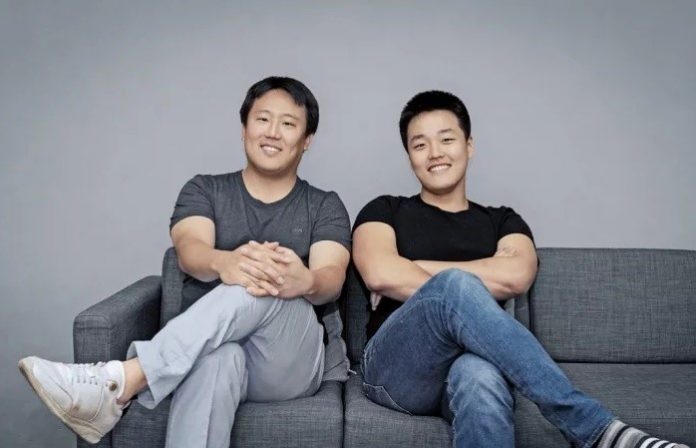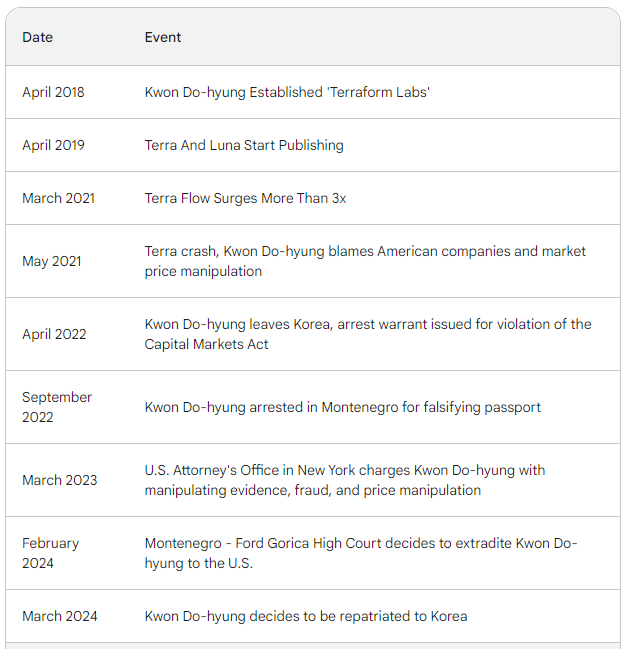
The extradition of Kwon Dohyeong, former CEO of Terraform Labs, to South Korea has heightened interest in the trials related to the Terra-Luna coin crash and the possibility of compensating victims. This extradition, intertwined with ongoing trials of Shin Hyunseong, former CEO of Chain Corporation, and Han Changjoon, former CFO, is anticipated to influence these proceedings.

On the 7th, the Montenegrin court overturned the existing decision to extradite Kwon Do-hyung to the United States and decided to extradite him to Korea, and his departure to Korea was confirmed around the end of this week. However, the Montenegrin prosecution put the brakes on him, saying there were procedural problems, and the extradition has been postponed again. It is expected that upon his extradition to South Korea, Kwon Dohyeong will be prosecuted, likely merging with the ongoing trials. The main contention of the trial revolves around whether Terra-Luna constitutes securities. If deemed as such, violations of the Capital Markets Act could lead to significant prison sentences.
However, if Terra’s securities status is not recognized, it may be difficult for ordinary investors to seek redress. Under Korean law, virtual assets are not recognized as securities, thus rendering the Capital Markets Act inapplicable. In such a scenario, Kwon Dohyeong may only face charges of fraud, and investors would have to individually pursue civil lawsuits against him. While the prosecution views Luna Coin as an ‘investment contract security,’ Shin Hyunseong’s defense argues it fails to meet the criteria of joint business and otherness, thus denying its securities status. Despite the US previously ruling Terra-Luna as unregistered securities, South Korea lacks clear standards, leaving the matter to the courts.
Legal circles anticipate that the Terra-Luna trial will set a precedent for determining the securities status of domestic virtual assets. However, there are concerns that recognizing the securities status of specific coins may lead to repercussions, causing courts to hesitate in their judgments. On another note, if Kwon Dohyeong stands trial in South Korea, it is expected that his sentence will be relatively lenient. While the US employs ‘concurrent sentencing’ to combine individual charges, South Korean law follows ‘aggravated concurrency,’ which only increases the maximum sentence by half for substantive concurrent crimes. Considering the precedent set by the 40-year sentence of Kim Jaehyun, former CEO of Optimus Asset Management, it is unlikely that Kwon Dohyeong will receive a similar sentence.
Some speculate that if Kwon Dohyeong speaks out, other prominent figures in the cryptocurrency industry may also be implicated. Close associates, investors, exchanges, and others are anxiously awaiting his statements.






